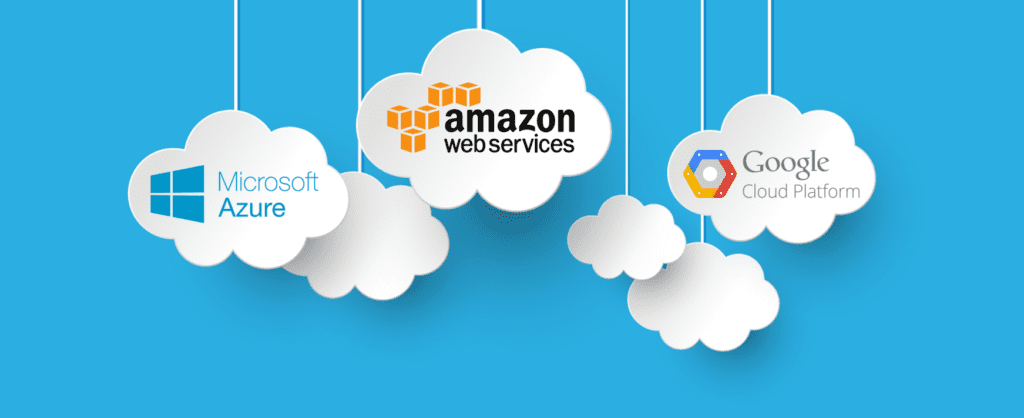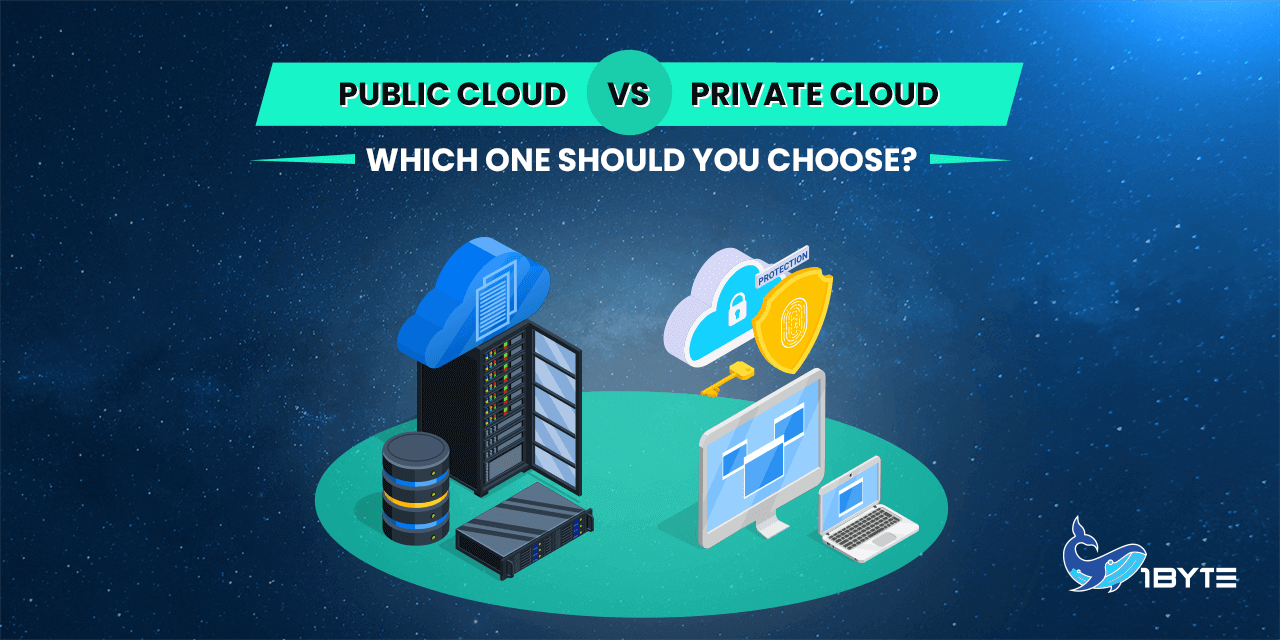Are you thinking about shifting your business to the cloud but aren’t sure which one is best for you? Many businesses struggle with the decision between public and private clouds. We’ll discuss the distinctions between these two cloud options in this tutorial and help you make an informed decision on which one to use. As cloud computing adoption grows, selecting the correct form of cloud can be important to your company’s success. Let’s take a closer look at the distinctions between public and private clouds.
Cloud Solutions at a Glance
Before we go into the specifics of public cloud vs private cloud, let’s take a quick look at what cloud solutions comprise.
FURTHER READING: |
| 1. Understanding Cloud Infrastructure: The Basics |
| 2. Cloud Migration Strategy: A Step-by-Step Guide |
| 3. Colocation vs Dedicated Server Hosting: Which Option Is Right for You? |
What is the Cloud?
Before we go into the public vs. private cloud debate, let’s first define the cloud. The phrase “cloud” refers to a network of remote servers that may be accessed via the internet to store, manage, and process data. Consider it a massive virtual hard drive that you may access at any time and from any location. This is why the cloud is so enticing to organizations of all sizes: it eliminates the need for on-premises servers and enables more flexible and scalable solutions.
According to MarketsandMarkets, the cloud computing industry is estimated to rise to $1,240.9 billion by 2027, up from $545.8 billion in 2022, at a CAGR of 17.9% during the forecast period. The most prevalent forms of cloud solutions are public cloud, private cloud, and hybrid cloud.
Importance of choosing the right cloud solution for your business
Choosing the correct cloud solution is critical for any company since it can affect productivity, efficiency, and overall performance.
Before picking between public and private clouds, evaluate your organization’s specific needs and the types of workloads you need to operate. Businesses that require flexibility, scalability, and cost-effectiveness may benefit from a public cloud solution. Public cloud providers such as Amazon Web Services, Microsoft Azure, and Google Cloud Platform provide a diverse set of services and resources that can be rapidly supplied, allowing organizations to respond to changing needs and demands.

A private cloud solution, on the other hand, is better suited for enterprises that demand greater control, security, and compliance. Private cloud solutions give specialized resources that may be tailored to the organization’s exact requirements, resulting in improved performance and data security.
In the following sections, we’ll go through the differences between public and private clouds in further depth.
Recommended reading: Understanding Cloud Infrastructure: The Basics
What is a Public Cloud?
You’ve probably heard of public cloud solutions if you’re thinking about transferring your business to the cloud. Due to its flexibility, cost-effectiveness, and scalability, public cloud solutions have grown in popularity in recent years. In this section, we’ll look at what a public cloud is, its features and benefits, and why it can be a good fit for your company.
Definition
A public cloud is a sort of cloud computing in which services, infrastructure, and resources are made available to everyone via the internet. This means that instead of building and maintaining their own data centers, businesses can rent computing resources, storage, and other services from third-party suppliers. Businesses and individuals can use public clouds to get software as a service (SaaS), platform as a service (PaaS), and infrastructure as a service (IaaS). Because the public cloud provider is responsible for infrastructure, security, and upgrades, it is an appealing alternative for businesses that wish to focus on their core business rather than IT management.
Scalability is one of the most significant benefits of a public cloud. The public cloud enables organizations to scale up or down their computer capabilities as needed, making it perfect for businesses with varying demands. Furthermore, public cloud services are often offered on a pay-per-use basis, allowing organizations to save money by just paying for what they use. Because public cloud providers benefit from economies of scale, they can provide services at a cheaper cost than businesses would pay to develop and maintain their own data centers.
Advantages
One of the key benefits of adopting a public cloud is its low cost. Because you share resources with other users, you only pay for what you use, making it a more cost-effective solution than managing your own IT infrastructure.
Public clouds are also very scalable, which means you can simply alter your resources to meet changing demands. This adaptability makes it an excellent alternative for enterprises with varying demand or seasonal traffic spikes.
Another advantage is the adaptability and simplicity of use. Storage, processing, networking, and security technologies are among the tools and services provided by public cloud providers that organizations can employ to improve their operations. The resources are easily accessible via the internet, making it ideal for firms that have remote workers or want data access from multiple places.
Finally, public clouds have a reputation for dependability. Your data and applications are redundantly stored and accessible using numerous servers spread across different locations, ensuring that your services stay available even if one server fails.
Disadvantages
While there are numerous benefits to using a public cloud, there are also potential negatives to be aware of.
Security is one of the primary issues. Your data is kept on servers shared with other customers in a public cloud. While cloud services take security seriously and have safeguards in place to protect your data, there is always the possibility of a breach.
Another issue is the inability to regulate the infrastructure. You may not have control over certain components of the environment, such as the underlying hardware or network configurations, because the infrastructure is shared with other customers. This lack of control can make it tough to tailor the environment to your individual requirements.

Furthermore, if the cloud provider goes down, you may be unable to access your data or applications until the problem is repaired. Finally, there is also the possibility of vendor lock-in. Because the infrastructure is owned and controlled by the cloud provider, switching to a new provider may be challenging.
Before making a decision, it is critical to carefully assess the benefits and drawbacks of a public cloud.
Use cases
There are several use cases for public clouds that span multiple sectors. Public clouds are suitable for enterprises and organizations that demand an IT infrastructure that is scalable, adaptable, and cost-effective. Startups and small businesses with limited capital can profit from public cloud services because they just pay for the resources they utilize. Public clouds are particularly advantageous for enterprises that require rapid scaling of their IT resources, such as online shops who demand extra computing and storage capabilities during high seasons.
Public clouds are also appropriate for companies with a global presence. Because public clouds contain a global network of servers, organizations may deploy apps and services globally, decreasing latency and providing a consistent user experience for customers. Furthermore, public clouds are perfect for businesses in need of disaster recovery and business continuity services. In the event of a disaster, public clouds provide dependable and highly accessible infrastructure that can swiftly and efficiently recover data and systems.
Public cloud services can also help government entities, educational institutions, and research organizations. These organizations frequently require massive compute and storage resources, which public clouds may deliver on-demand. Access to data and applications from anywhere in the world is another advantage of public clouds.
Examples of popular public cloud providers
Amazon Web Services (AWS), Microsoft Azure, and Google Cloud Platform (GCP) are examples of popular public cloud services. These cloud service providers provide Infrastructure as a Service (IaaS), Platform as a Service (PaaS), and Software as a Service (SaaS).
AWS was founded in 2006 and is widely regarded as the greatest cloud service provider in the market. Microsoft Azure is another well-known cloud provider that provides a wide range of cloud services and connects effectively with Microsoft products. Google Cloud Platform provides seamless integrations for Google’s product and service suite, including Google Workspace and TensorFlow.
Among the other cloud providers are IBM, Alibaba, Oracle, and OpenStack. These cloud companies provide a wide range of cloud services and solutions to meet the demands of diverse industries and businesses.
When deciding between a public cloud and a private cloud, it is critical to examine your company’s needs as well as the level of control you require over your data and resources. Public clouds are less expensive and provide better flexibility, scalability, and a wider choice of services, whereas private clouds provide greater control, security, and customisation at a higher cost.
Recommended reading: Cloud Migration Strategy: A Step-by-Step Guide
What is a Private Cloud?
If you’re thinking about shifting your business to the cloud, you’ve probably heard of private cloud solutions. Private clouds have several advantages over public clouds, including enhanced security and infrastructure management. In this part, we’ll define a private cloud, discuss its features and benefits, and discuss why it can be a suitable fit for your business.
Definition
A private cloud is a sort of cloud computing that is exclusive to one business or entity. This means that no other customers or users have access to the infrastructure, services, or resources. Private clouds are often constructed and managed in-house or by a third-party supplier. The infrastructure can be on-premises or hosted in a data center, but it is only used by the business.
Control and security are two of the most important advantages of a private cloud. The infrastructure, including hardware, network configurations, and security measures, is completely under the hands of organizations. This enables better customization and tweaking of the environment to individual business requirements. Private clouds are also more secure than public clouds since their resources are not shared with other customers, lowering the danger of a data breach.
Advantages
Increased control over infrastructure is one of the primary advantages of a private cloud. Organizations have complete control over hardware and network configurations, enabling for more customization and tweaking of the environment to individual business demands.
Increased security is another benefit. Because the infrastructure is entirely for the organization’s use, the risk of a data breach is reduced. Furthermore, private clouds can be situated on-premises, adding physical security.
Private clouds are also more reliable than public clouds. There is no possibility of shared resources affecting performance because the infrastructure is dedicated only to the organization’s use. This improves predictability and consistency in performance.
Finally, private clouds are more adaptable than public clouds. Organizations can customize the environment to meet unique business objectives and select the level of support and service that best meets their requirements.
Disadvantages
While there are various advantages to having a private cloud, there are certain drawbacks to be aware of.
One of the most pressing challenges is the expense. Because the organization is responsible for all parts of the infrastructure, private clouds can be more expensive to set up and maintain than public clouds.

Scalability is another concern. Because the organization is responsible for all aspects of the infrastructure, private clouds might be more difficult to grow than public clouds. This can make it difficult for the business to adjust to shifting demands.
Finally, there’s the matter of vendor exclusivity. Switching to a new provider might be difficult since the infrastructure is owned and controlled by the company or a third-party supplier.
Before making a decision, it is necessary to carefully weigh the advantages and disadvantages of a private cloud.
Use cases
Private clouds are ideal for enterprises that need more control, security, and flexibility in their IT infrastructure. Private clouds are generally preferred by companies that deal with sensitive data, such as financial and healthcare organizations, since they provide a higher level of protection and control. Private clouds are particularly advantageous for enterprises that must meet legal standards such as HIPAA, GDPR, or PCI DSS.
Private clouds are ideal for businesses that require complete control over their IT infrastructure and need to manage their own resources. Groups that require high-performance computing, such as scientific research groups and financial institutions, frequently use private clouds. They can also be employed by multinational corporations that require a uniform user experience across multiple regions and countries.
Private clouds are especially beneficial for enterprises that seek customized solutions that are suited to their individual requirements. Private clouds provide a wide range of services that may be tailored to an organization’s specific requirements, with a high degree of flexibility and scalability.
Examples of popular public cloud providers
Popular private cloud services include VMware, OpenStack, and Microsoft Azure Stack. These service providers provide a variety of services, including Infrastructure as a Service (IaaS) and Platform as a Service (PaaS), that can be tailored to an organization’s specific requirements.
VMware is a renowned provider of private cloud services, offering a variety of high-performance and secure cloud computing solutions. Another well-known private cloud provider is OpenStack, which provides a highly customizable and scalable cloud infrastructure. Microsoft Azure Stack offers a comprehensive set of private cloud services, as well as hybrid cloud solutions that allow enterprises to link their private cloud infrastructure to public cloud services.
IBM Cloud Private, Oracle Cloud at Customer, and Red Hat OpenShift are some more private cloud providers. These suppliers provide a variety of private cloud services that can be tailored to an organization’s specific requirements.
When picking between a public cloud and a private cloud, it is critical to evaluate your organization’s specific demands. Private clouds provide more control, security, and customization, but at a higher cost. Public clouds, on the other hand, provide greater flexibility, scalability, and a broader range of services, but may not satisfy your organization’s specific demands.
Public Cloud vs Private Cloud: Key Differences
Are you debating whether to use a public or private cloud for your business? Let’s look at the fundamental distinctions between the two solutions. Third-party suppliers maintain public clouds, which give services to various consumers via the internet. Private clouds, on the other hand, are maintained by a single enterprise and are frequently hosted on-premises or in a private data center. The choice between the two will be determined by your company’s demands, goals, and resources. Here are some things to think about.
An Overview
Now that we’ve defined public and private clouds, let’s look at the fundamental distinctions between them.
To begin, ownership is a key contrast between public and private clouds. Private clouds are controlled by a single business, whereas public clouds are managed by third-party companies who make public resources available.
Second, while deciding between public and private clouds, security is an important issue to consider. Because they are dedicated to a single enterprise, private clouds give a better level of data security and management. Public clouds, on the other hand, are more vulnerable to security breaches because they are shared by several users.
Third, while picking between public and private clouds, cost is an important factor to consider. Private clouds are more expensive than public clouds since they necessitate the management of specific infrastructure, software, and employees. Public clouds, on the other hand, are more cost-effective since users just pay for the resources they use, and maintenance and infrastructure costs are shared by all users.
Fourth, another important issue to consider when deciding between public and private clouds is customizability. Because they are dedicated to a single enterprise, private clouds provide greater freedom and customisation. Public clouds, on the other hand, allow for less customization because the resources are shared by several users and the providers must maintain a consistent environment for all customers.
Finally, while deciding between public and private clouds, scalability is critical. Because they provide nearly unlimited resources that can be readily scaled up or down to suit changing demand, public clouds are more scalable than private clouds. Private clouds, on the other hand, are less scalable because they are constrained by the organization’s physical resources.
1Byte’s Recommendation
As top cloud computing provider, we have considerable expertise providing both public and private cloud solutions for our clients. After carefully weighing the merits and drawbacks of each cloud solution, we propose that our clients choose the public cloud if they have the budget and want to benefit from scalability, flexibility, and cost-effectiveness.

The public cloud provides a wide range of services that are easily accessible to enterprises of any size or industry. With the public cloud, you don’t have to worry about maintaining hardware, infrastructure, or maintenance because the cloud service provider handles all of these chores.
Furthermore, the public cloud enables organizations to scale up or down their resources on demand, allowing them to pay for exactly what they use. This can result in significant cost reductions for firms, especially those with changing demand for their services or products.
However, if a company has sensitive data that requires strict security or compliance, the private cloud may be the preferable choice. Businesses have complete control over their data with a private cloud, which can give them a higher sense of security and privacy. Furthermore, a private cloud can be tailored to a company’s individual demands, which is especially useful for enterprises with unusual requirements.
Finally, the choice between a public cloud and a private cloud is determined by the individual needs and budget of each firm. Before making a decision, we always advise our clients to carefully assess their options and consider their long-term goals.
Leverage 1Byte’s strong cloud computing expertise to boost your business in a big way
1Byte provides complete domain registration services that include dedicated support staff, educated customer care, reasonable costs, as well as a domain price search tool.
Elevate your online security with 1Byte's SSL Service. Unparalleled protection, seamless integration, and peace of mind for your digital journey.
No matter the cloud server package you pick, you can rely on 1Byte for dependability, privacy, security, and a stress-free experience that is essential for successful businesses.
Choosing us as your shared hosting provider allows you to get excellent value for your money while enjoying the same level of quality and functionality as more expensive options.
Through highly flexible programs, 1Byte's cutting-edge cloud hosting gives great solutions to small and medium-sized businesses faster, more securely, and at reduced costs.
Stay ahead of the competition with 1Byte's innovative WordPress hosting services. Our feature-rich plans and unmatched reliability ensure your website stands out and delivers an unforgettable user experience.
As an official AWS Partner, one of our primary responsibilities is to assist businesses in modernizing their operations and make the most of their journeys to the cloud with AWS.
Conclusion
To summarize, both public and private clouds offer advantages and disadvantages. It ultimately depends on the organization’s specific demands and expectations. As premier cloud computing firm, 1Byte advises businesses to evaluate data sensitivity, regulatory requirements, scalability, and budget when deciding between public and private cloud options.
Before making a decision, it is critical to weigh the risks and rewards of each alternative. Organizations may make an informed selection that corresponds with their company objectives and aims by understanding the distinctions between public cloud and private cloud. At 1Byte, we provide both public and private cloud solutions that are tailored to the specific requirements of each of our clients. To discover more about our cloud computing services, please contact us immediately.

